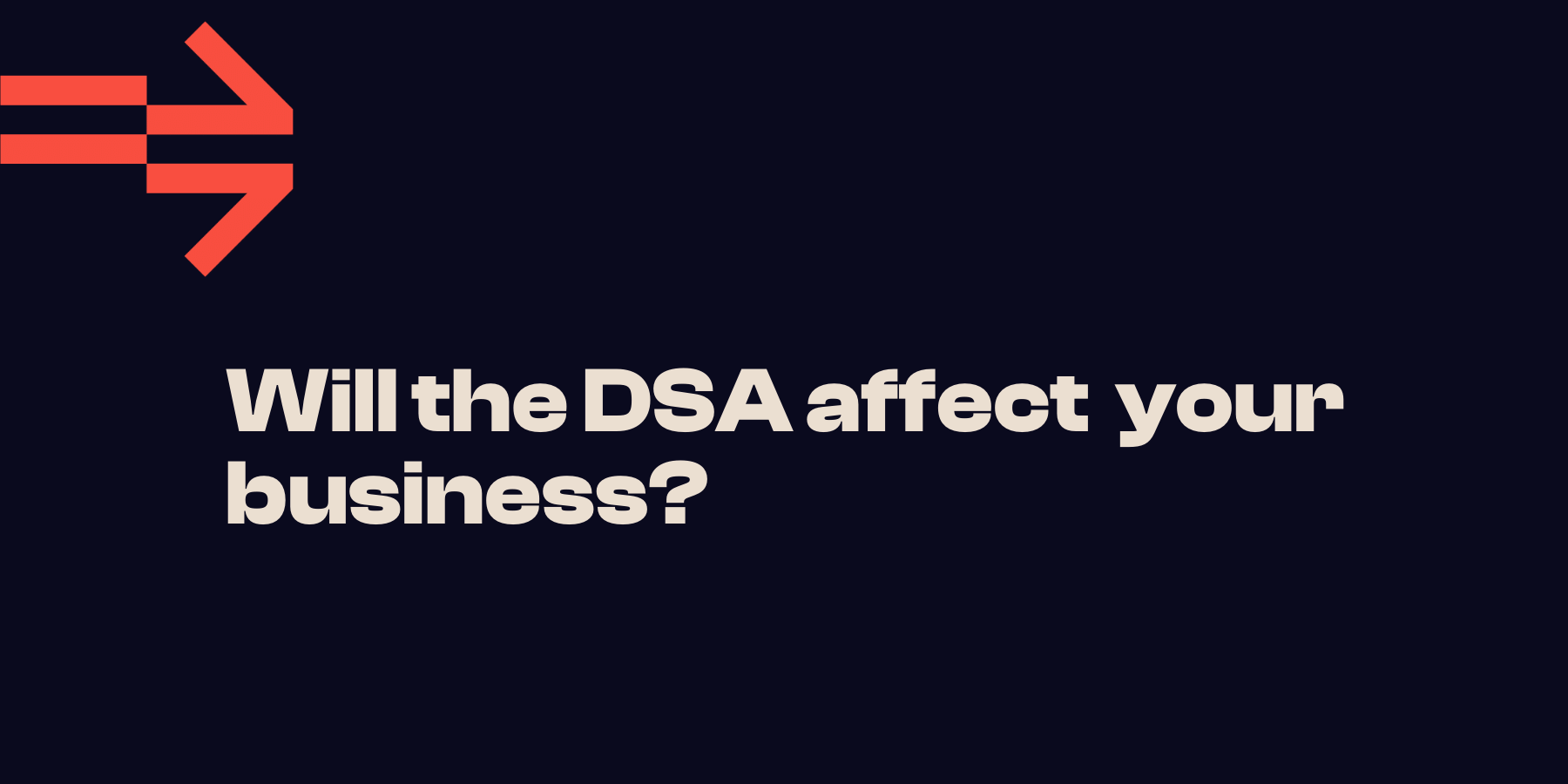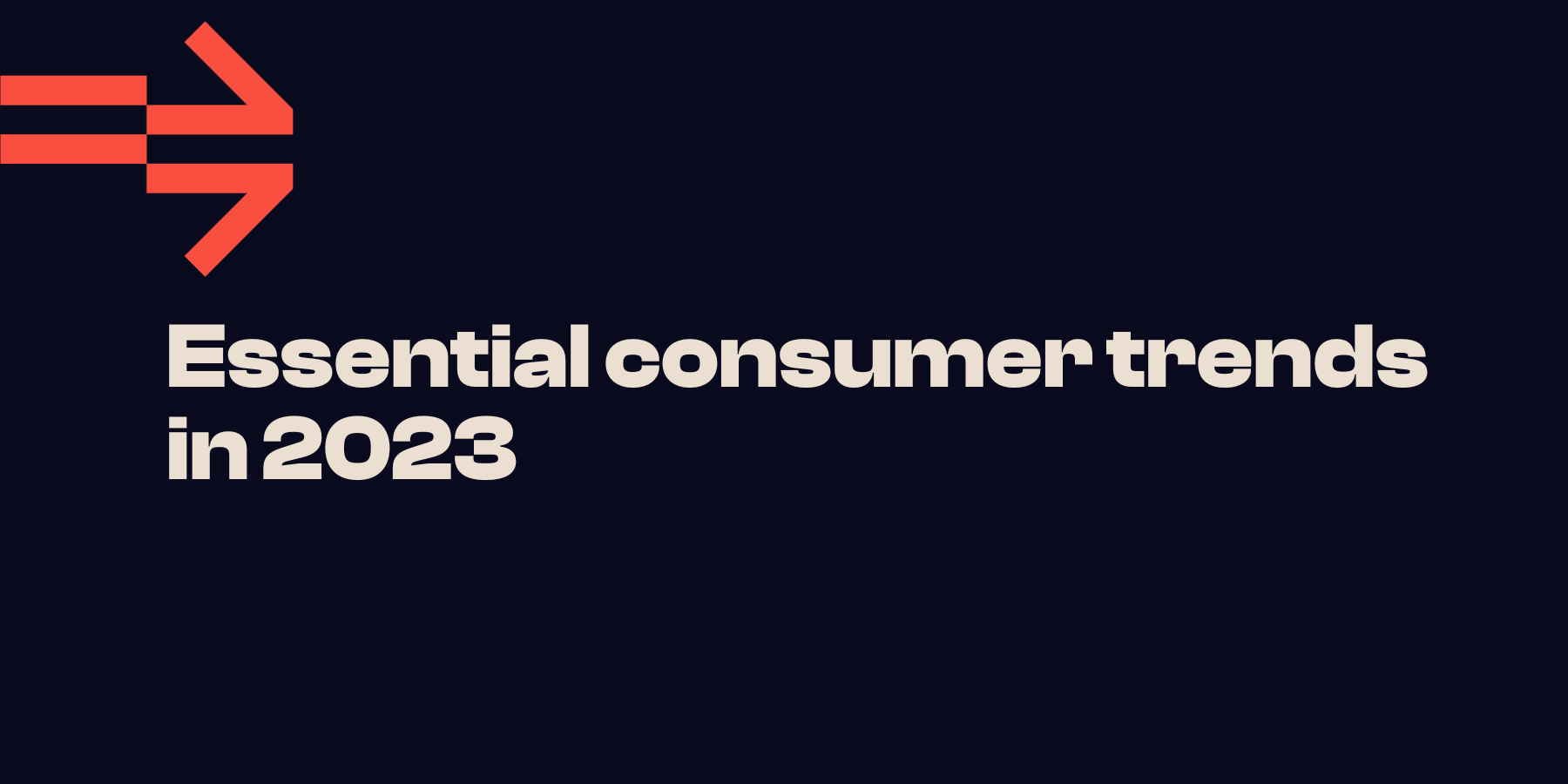Will the Digital Services Act affect your business?

Last updated: 11 August 2022
After years of discussions stretching back to December 2020, the European Commission has passed its Digital Services Act (DSA).
The DSA marks another step in the European Union’s commitment to regulating the online space, offering better protection for internet users.
While the DSA will primarily affect businesses operating in the European Union, its effects will be felt across the world. In this blog, we’ll explain the Digital Services Act, and break it down to see if it will affect how your business operates online.
What is the DSA?
The Digital Services Act is a piece of legislation that will seek to protect individuals online and will come into effect on 1 January 2024.
In a statement, the European Commission said:
The Commission has proposed today an ambitious reform of the digital space, a comprehensive set of new rules for all digital services, including social media, online marketplaces, and other online platforms that operate in the European Union: the Digital Services Act and the Digital Markets Act (DMA).
The central aims of the DSA are to:
- Protect consumers and their rights online
- Build clear transparency and accountability across online platforms
- Develop innovation, growth, and competition in the EU
The DSA will, in essence, place more responsibility on the part of search engines, social media networks, and online marketplaces to police their content.
What will change?
The DSA will affect a large range of online services, from simple websites to internet infrastructure services and online platforms.
In other words, all digital services that operate in the EU will be subject to the DSA, regardless of where your business is located.
All the following will be affected by the DSA:
- Online store and marketplaces
- App stores
- Social networks and content-sharing platforms
- Cloud and web hosting services
- Accommodation platforms
- Intermediary services such as internet providers and domain registrars
- Online travel platforms
- Collaborative economy platforms
The Commission states that the Digital Services Act will:
“…create horizontal rules to ensure accountability, transparency and public oversight around how online platforms shape the information space in which our societies thrive.”
At its core, the DSA is a regulatory framework that will impose rules around how platforms:
- moderate content,
- advertise,
- and use algorithmic processes.
That last point could become massively inconvenient for major search engines, such as Google and social/advertising platforms like Meta, as they will have to take the public behind the curtain and explain how their algorithms work.
Under the DSA, digital services will face steep fines of up to 6% of their global annual turnover for noncompliance.
Will this affect your business?
The central goal of the DSA is to break up the so-called ‘gatekeepers’ of large online platforms, such as Google, Apple, and Facebook.
The European Commission believes that these large gatekeepers are problematic to the development of startups and SMEs. This is because small businesses become dependent on large online platforms to moderate communication and content ranking.
As Google and Facebook et al have access to the consumer data generated by their online activities, SMEs and startups are left in direct competition with these larger businesses who use the data to serve their own interests.
The DSA aims to even up the playing field by making the inner workings of these gatekeepers more transparent.
Meanwhile, its sister legislation, the Digital Markets Act, will compel gatekeeper platforms to give small businesses access to certain data. Under the DSA, online platforms will be required to create ad libraries where anyone can find data on their ad campaigns. For instance, after the DSA comes into effect, an advertiser can search for campaigns run by brands like Apple or Calvin Klein in specific regions or targeted to specific audiences; as a result, any search algorithms used by these brands will become public knowledge.
While the intention and ethics of this law are positive, there could be unintended consequences. Privacy Attorney and Vice Chair of Technology Transactions and Data Privacy Group at Polsinelli, Elizabeth Harding, believes that public access to these algorithms could ultimately do more harm than good, as spammers get access to specialised algorithms:
“Any public access to those algorithms can promote spammer content while creating issues around balancing trade secrets against the law."
The DSA may want to create a safer and more equal online environment for all, but whether or not it will actually support smaller businesses and rein in the larger 'gatekeepers' remains to be seen.
The Digital Services Act in Australia
If your business is based outside of the EU, but operates within the trading block, the DSA will apply to your business.
However, while the DSA is focussed on businesses trading in the EU, its effect will be felt around the world - potentially even for those businesses operating outside the EU.
As online gatekeepers are pushed to change their working practices in the EU, these businesses may also change their best practices across the world. This was the case when the GDPR was introduced by the EU, so it stands to reason that a similar effect could occur with the DSA.
Have any questions?
As Google and Facebook Partners, we manage paid advertising accounts across the globe.
In other words, we understand paid advertising.
If you have any questions about the DSA or your paid advertising campaigns in general, don’t be afraid to reach out and ask the Refuel team!






